Edit, Download, and Sign the Understanding Electron Configurations in Atoms
Form
eSign
Add Annotation
Share Form
How do I fill this out?
To fill out this form, start by gathering all necessary information regarding electron configurations. Ensure that you understand the concept of energy levels and how electrons are arranged in atoms. Follow the instructions carefully to complete the form accurately.
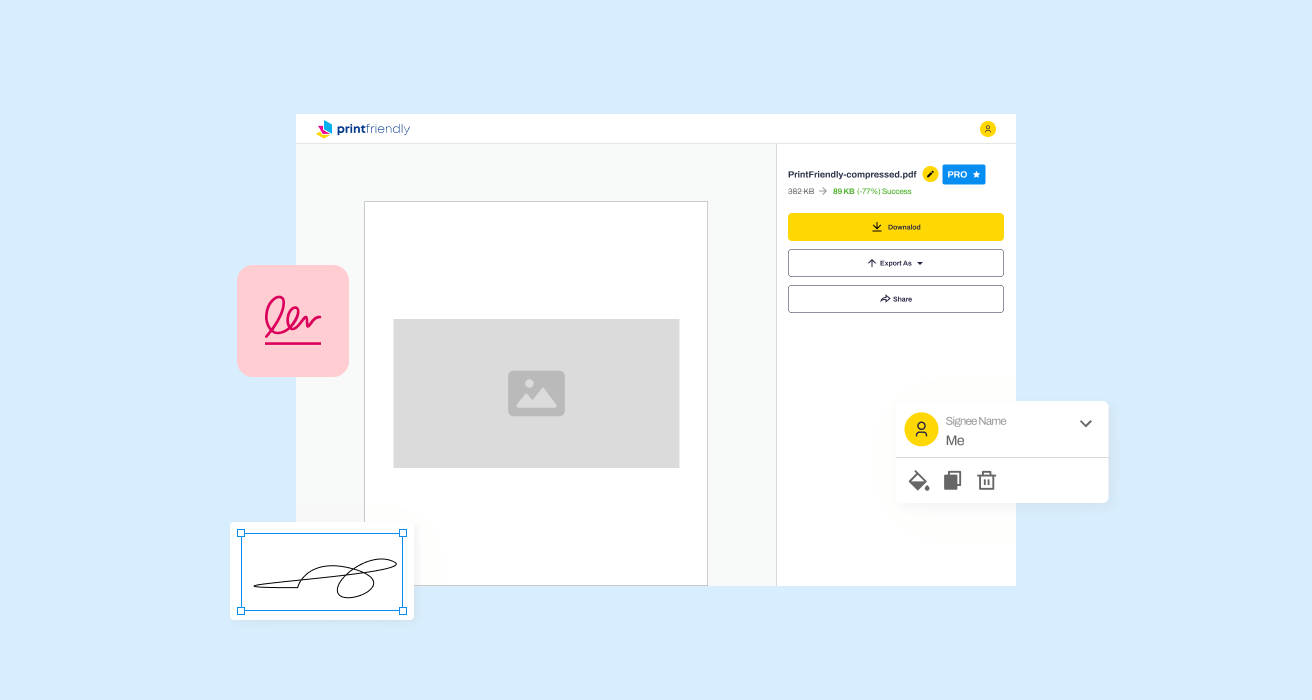
How to fill out the Understanding Electron Configurations in Atoms?
1
Gather all necessary information about electron configurations.
2
Understand the concept of energy levels in atoms.
3
Complete the form by following the provided instructions.
4
Review your entries for accuracy and clarity.
5
Submit the form once you have confirmed all details are correct.
Who needs the Understanding Electron Configurations in Atoms?
1
Students studying chemistry need the file to learn about electron arrangements.
2
Teachers can use this file for instructional purposes in physics and chemistry classes.
3
Researchers may need it for academic papers on atomic theory.
4
Professionals in the field of chemistry can reference the information for their work.
5
Anyone interested in science can gain insights into atomic structure from this file.
How PrintFriendly Works
At PrintFriendly.com, you can edit, sign, share, and download the Understanding Electron Configurations in Atoms along with hundreds of thousands of other documents. Our platform helps you seamlessly edit PDFs and other documents online. You can edit our large library of pre-existing files and upload your own documents. Managing PDFs has never been easier.

Edit your Understanding Electron Configurations in Atoms online.
Edit your PDF on PrintFriendly with our simple tools. You can add notes, highlight sections, or make clarifications directly on the document. The intuitive interface allows for quick adjustments to meet your needs.

Add your legally-binding signature.
Signing your PDF on PrintFriendly is quick and easy. You can add your signature anywhere on the document using our editing features. Enhance your document’s authenticity with just a few clicks.

Share your form instantly.
Share your PDF quickly via PrintFriendly's sharing options. You can generate shareable links or download your document for distribution. This flexibility ensures your information reaches your intended audience effortlessly.
How do I edit the Understanding Electron Configurations in Atoms online?
Edit your PDF on PrintFriendly with our simple tools. You can add notes, highlight sections, or make clarifications directly on the document. The intuitive interface allows for quick adjustments to meet your needs.
1
Open your PDF file in PrintFriendly.
2
Select the section you want to edit.
3
Use the editing tools to make changes.
4
Review your edits for accuracy.
5
Download or share the edited PDF as needed.

What are the instructions for submitting this form?
To submit this form, review all filled fields for completeness. You can email the completed document to the appropriate educational institution or submit it directly via online platforms as specified. Make sure to include any necessary attachments and follow the submission guidelines outlined by your instructor.
What are the important dates for this form in 2024 and 2025?
Key dates for this file include potential deadlines for submissions or educational milestones, which may vary by curriculum. Stay updated with your local educational institution for specifics. Refer to your course syllabus or academic calendar for related timelines.

What is the purpose of this form?
The purpose of this form is to educate users about electron configurations in atoms and their significance in chemistry. By outlining the arrangements and energy levels of electrons, users can better grasp important scientific concepts. This form serves as a valuable resource for both learning and teaching.

Tell me about this form and its components and fields line-by-line.

- 1. Electron Configuration: Details the specific arrangement of electrons in an atom.
- 2. Energy Levels: Indicates the shells around the atomic nucleus.
What happens if I fail to submit this form?
If the form is not submitted correctly, users may miss important educational opportunities. Incomplete or inaccurate forms can lead to misunderstandings in atomic theory. It is crucial to review all entries before submission.
- Inaccurate Information: Submitting the form with errors can lead to confusion.
- Missed Deadlines: Failing to submit on time may result in academic consequences.
- Quality of Work: Incomplete submissions reflect poorly on the user’s efforts.
How do I know when to use this form?

- 1. Study Resource: To aid in studying for chemistry-related courses.
- 2. Teaching Tool: For educators preparing lesson plans on atomic structure.
- 3. Research Documentation: To document findings related to atomic theory.
Frequently Asked Questions
What is electron configuration?
Electron configuration describes the arrangement of electrons in an atom.
How can I edit this document?
Use our editing tools within PrintFriendly to adjust the content as needed.
Is this file suitable for beginners?
Yes, the information is presented in a clear and understandable manner.
Can I download this document after editing?
Absolutely! You can download the edited PDF directly from our platform.
What are energy levels?
Energy levels are the shells around an atom's nucleus that indicate the energy of electrons.
How do I share the PDF?
You can create shareable links or download the file to distribute.
Why is electron configuration important?
Understanding electron configuration is crucial for grasping basic chemistry concepts.
What tools are available for editing?
Our platform offers various tools like highlighting, adding text, and drawing.
Do I need an account to edit?
No, you can edit and download without creating an account.
How do I submit my edited file?
Simply download the file after editing to finalize your submission.
Related Documents - Electron Configurations
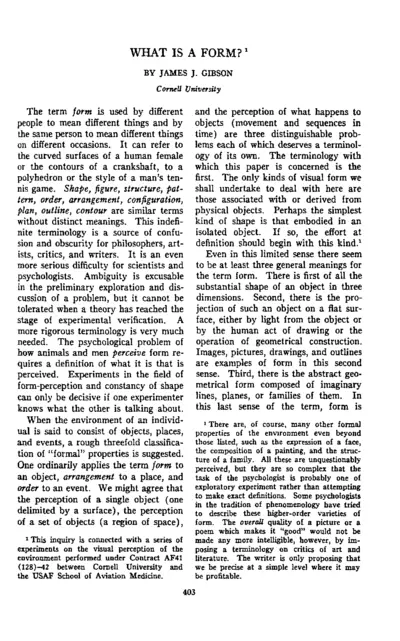
Understanding Form and Form-Perception by James J. Gibson
This document explores various definitions and theories of form, emphasizing the need for precise terminology. It delves into experiments related to the visual perception of form, distinguishing between solid and surface forms. The text critiques traditional views and presents new perspectives on form-perception.
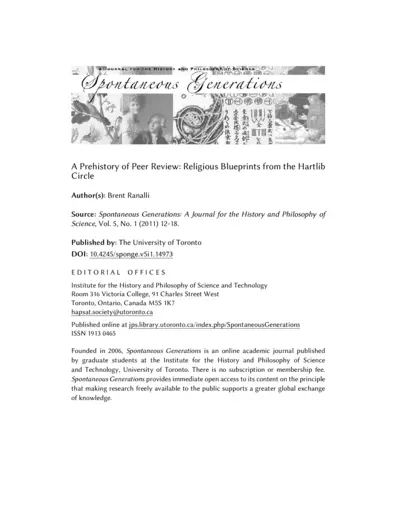
Prehistory of Peer Review: Religious Blueprints
This file explores the origins and development of peer review in science, tracing its roots to religious scholars in the Hartlib circle. It discusses the influence of the Royal Society of London and other early scientific organizations. The content is based on extensive historical research and analysis.
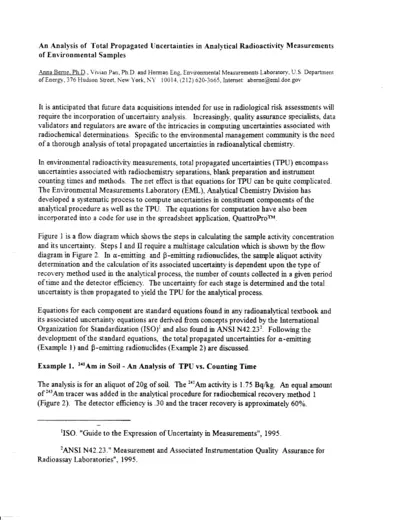
Analysis of Uncertainties in Radioactivity Measurements
This document discusses the uncertainties in analytical radioactivity measurements of environmental samples. It includes detailed equations and methods for calculating total propagated uncertainties. Useful for quality assurance specialists, data validators, and radiochemical analysts.

IRMS Sample Analysis Request Form Guidelines
This file contains instructions and details about the IRMS Sample Analysis Request Form. It is used to request sample analysis in the Laboratory for Isotopes and Metals in the Environment. Ensure you have the required approvals before using the IRMS.

Double Stuff Oreo Cookie Science Experiment
This file contains details and instructions for conducting a science experiment to evaluate the marketing claim of Double-Stuff Oreo cookies. Users will measure the mass of regular and Double-Stuff Oreo cookies along with their fillings. It guides users through the process of data collection, calculation, and analysis using the scientific method.
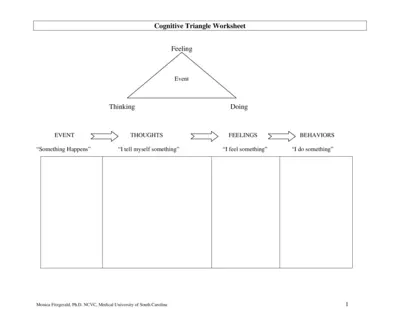
Cognitive Triangle Worksheet Instructions and Details
This file provides an overview and detailed instructions on how to use the Cognitive Triangle Worksheet. It helps users understand the relationship between their thoughts, feelings, and behaviors. Perfect for those interested in cognitive-behavioral strategies.

Engaging Doctor Pretend Play Printables for Kids
Transform playtime with free doctor pretend play printables designed for kids. These fun tools foster creativity and learning through imaginative play. Perfect for children from toddlers to first graders.
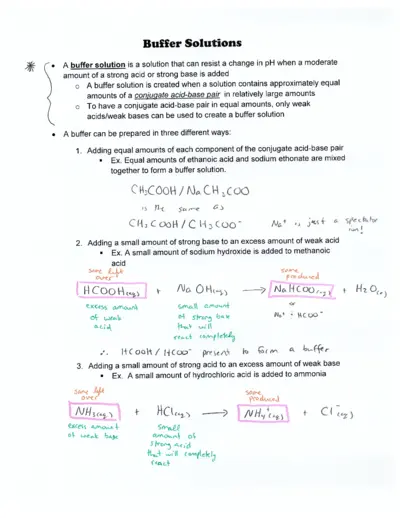
Buffer Solutions: Understanding Their Functionality
This file provides comprehensive insights into buffer solutions, including their preparation and pH resistance mechanisms. Ideal for chemistry students and professionals seeking to understand buffer systems. Practice problems included for hands-on learning.
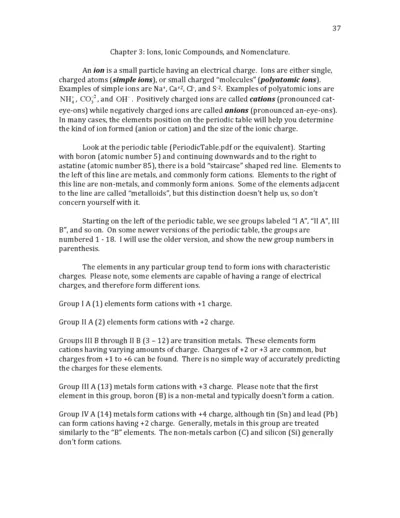
Ions and Ionic Compounds: Understanding Nomenclature
This file provides a comprehensive overview of ions, including their types, charges, and nomenclature rules. It covers essential details such as simple and polyatomic ions, and how to name them correctly. Perfect for students and professionals looking to deepen their understanding of ionic compounds.

Biology Form 3 Notes and Instructions
This file contains detailed biology notes for Form 3 students. It covers essential topics such as organism classification and characteristics of various kingdoms. Perfect for studying and exam preparation.
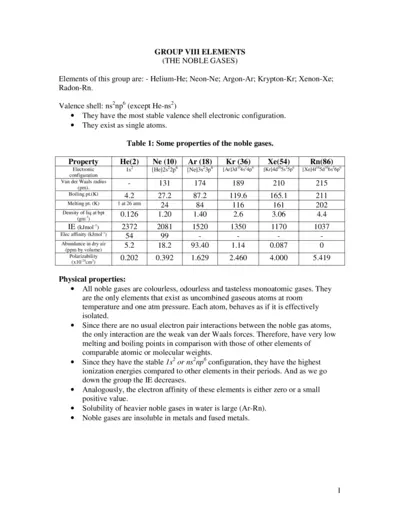
Noble Gases Properties and Chemical Behavior
This document provides a comprehensive overview of the noble gases, their properties, and chemical behaviors. It includes information on individual gases, their electronic configurations, and compound formations. Ideal for students and professionals in chemistry.
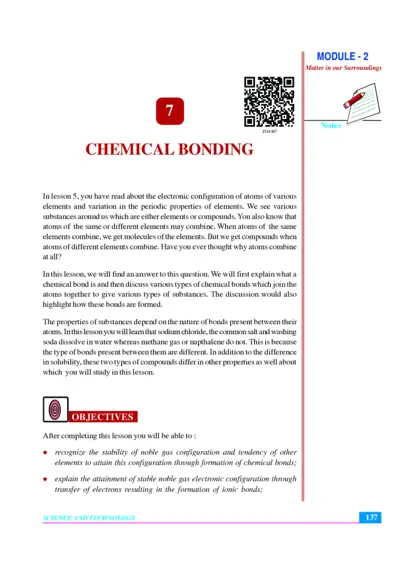
Chemical Bonding and Matter in Our Surroundings
This file provides detailed insights into chemical bonding, including ionic and covalent bonds. It covers the principles of matter in our surroundings and the electronic configurations of elements. Ideal for students and educators in chemistry to enhance their understanding.